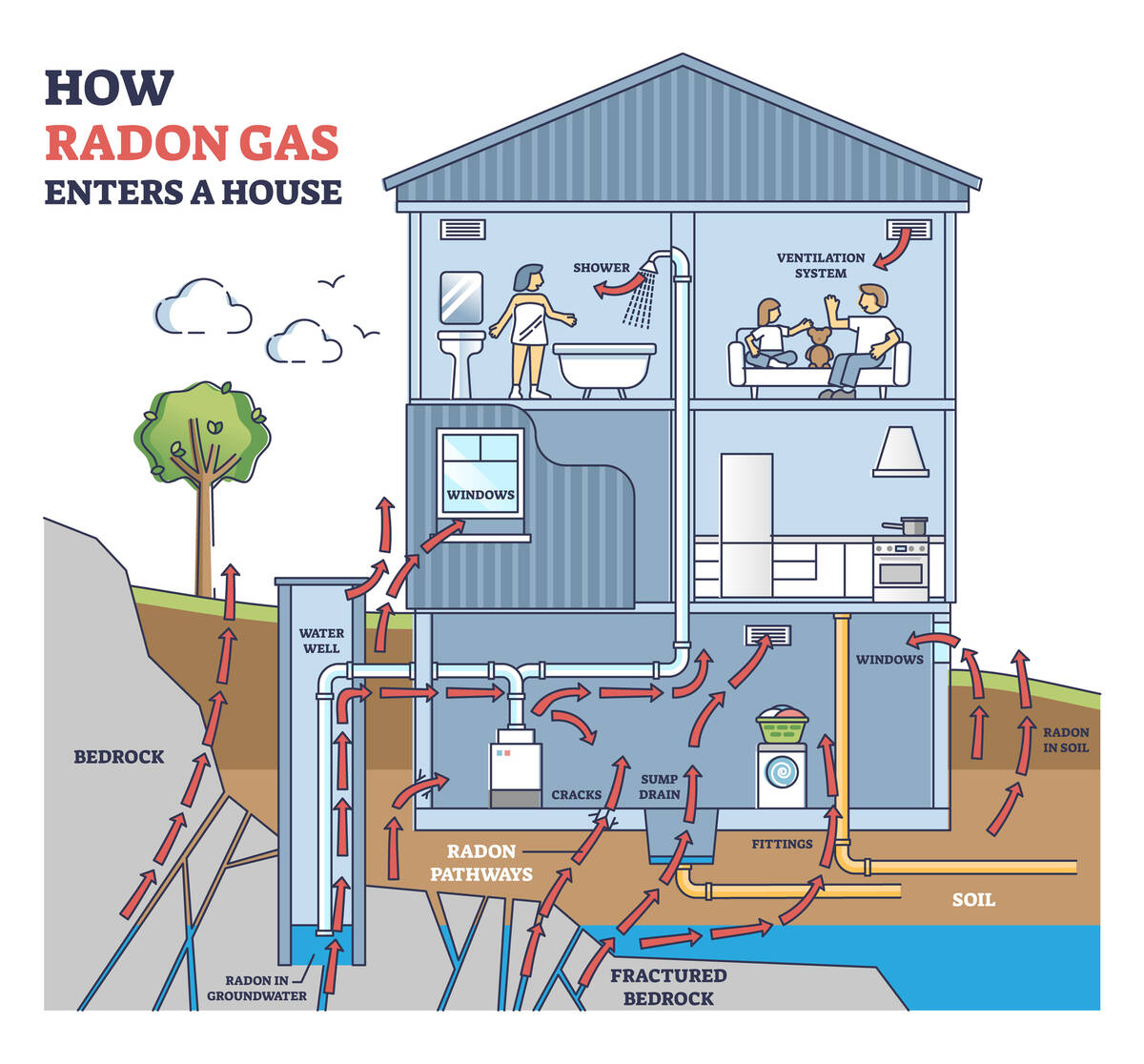Protect your family by testing your home for radon — for free
January is National Radon Action Month — a time to raise awareness about radon, an invisible and odorless gas that is the second leading cause of lung cancer in the United States. Across Nevada, families are encouraged to test their homes and take action to reduce exposure.
Radon forms from the natural breakdown of uranium in soil, rock, and water. It seeps into homes through cracks in foundations, floors, and walls. While radon cannot be seen or smelled, its health risks are serious. According to the Environmental Protection Agency (EPA), radon exposure causes over 21,000 lung cancer deaths annually.
Testing is the only way to determine if your home has elevated radon levels. In Nevada, the state’s geology often leads to higher levels of this dangerous gas. Any radon result over 2.7 picocuries per liter (pCi/L) is concerning and should prompt action.
To make testing easy, the University of Nevada, Reno Extension is offering free radon test kits throughout January at county Extension offices statewide. “Radon testing is simple and essential for protecting your health,” says Chris Kelly, manager of the Nevada Radon Education Program. “Our free test kits remove barriers, empowering more families to take action this month.”
Using a radon test kit is quick and straightforward. Place the kit in the lowest level of your home where people spend time, follow the instructions, and mail it to the lab for analysis. If levels are above the EPA’s action level of 4.0 pCi/L, or even concerning levels above 2.7 pCi/L, consider consulting a certified radon mitigation professional to reduce radon levels in your home.
Health care providers, nurses, and community leaders can play a vital role in spreading awareness about radon’s risks. By encouraging testing and sharing information, they help protect families from preventable health threats.
A free public class on radon awareness will be offered on January 16th at 10 a.m. at the University of Nevada Reno’s Nye County Extension Office, 1651 E. Calvada Blvd., in Pahrump.
Attendees will not only learn about the risks of radon gas and its connection to lung cancer but will also receive a free radon test kit to ensure their home is safe. Seating for the class is limited to 30 participants. To reserve your seat, call 775-336-0252 or email Chrisk@unr.edu.
For more information, visit UNR Extension’s radon resources webpage at https://extension.unr.edu/radon or find certified radon contractors at https://extension.unr.edu/radon/contractors.aspx.
















